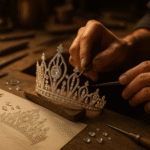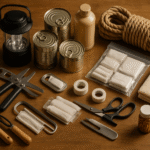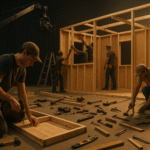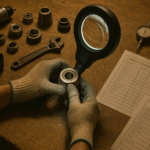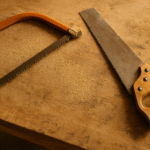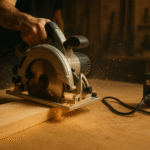A power tool can be fast, powerful, and smart — but none of that matters if it can’t last.
Durability remains the truest measure of value. To see which manufacturers stand the test of time, long-term users and repair data reveal how major brands perform after years of heavy work.
Here’s how the industry’s most recognized names — DeWalt, Milwaukee, Makita, and Bosch — stack up in the 5-year durability race.
What Durability Really Means
Durability is more than avoiding early failure. It involves component fatigue, motor longevity, and battery resilience under thousands of charge cycles.
Brands that design for repairability and cooling efficiency consistently outperform those chasing peak wattage alone.
As discussed in Repair, Don’t Replace: The New Ethics of Modern Craftsmanship, maintenance-friendly construction often predicts long service life better than any spec sheet.
DeWalt: Built for Endurance
DeWalt tools retain their reputation for rugged reliability. Their metal gear housings and thermal protection systems prevent heat-related wear during prolonged use.
Under heavy-duty testing, DeWalt tools show minimal loss in torque output even after several years of operation, especially within the FlexVolt platform.
Regular maintenance and compatible parts availability keep them functional long past warranty periods.
Milwaukee: Consistent Under Pressure
Milwaukee’s M18 Fuel line continues to perform well in both professional and industrial environments. Reinforced casings and overload protection extend tool lifespan, while the REDLINK electronics safeguard motors from overheating.
The durability advantage is similar to what we observed in The Battery Wars: Which Brand Dominates Power and Longevity in 2025? — strong performance sustained through balanced energy flow and smart control.
Makita: Mechanical Simplicity That Lasts
Makita relies on mechanical consistency rather than software complexity.
Fewer electronic points of failure mean less downtime. Its XGT platform, paired with improved dust- and moisture-resistant housings, keeps tools reliable across outdoor and workshop settings.
Users often report minimal maintenance requirements, making Makita a favorite among those who prioritize dependability over digital features.
Bosch: Engineering for Precision and Lifespan
Bosch continues to combine German engineering with smart design. The CORE18V battery line’s temperature-controlled packs and brushless motors enhance performance stability over years of repeated use.
Its durability is most noticeable in rotary and drilling equipment — tools that face continuous strain yet show little drop-off thanks to efficient heat management and solid internal bearings.
Sustainability Through Longevity
Durability has become a sustainability metric.
Brands that last longer reduce waste and carbon footprint — a value reflected in Sustainable Power: How Tool Brands Are Going Carbon Neutral.
Products designed for easy repair and component replacement extend both service life and environmental responsibility.
The 5-Year Verdict
Across thousands of hours of use and independent field reports, these trends emerge:
- DeWalt – Most reliable under heavy industrial load
- Milwaukee – Best electronic protection and consistency
- Makita – Simplest long-term maintenance
- Bosch – Strong precision tools with thermal endurance
In short, all four survive the 5-year test, but each excels for different reasons.
Choosing the right one depends on whether your priority is strength, efficiency, simplicity, or precision.


